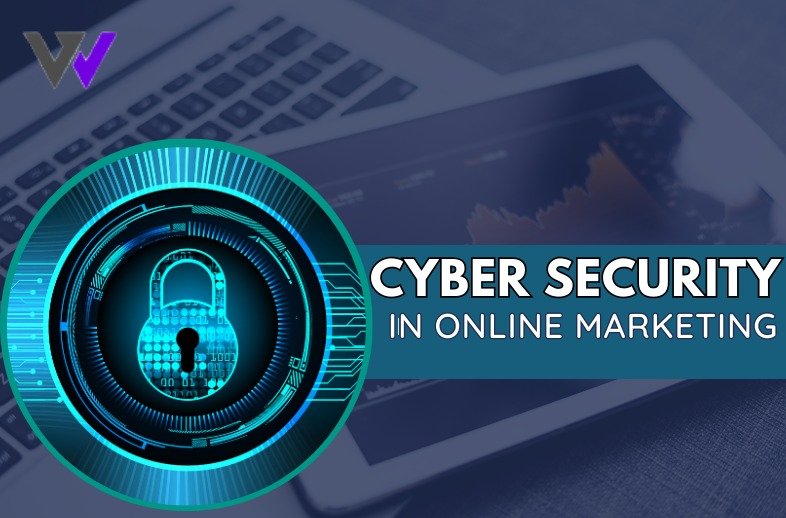Cyber Security protects the internet against malicious attacks, cyber crimes, and data threats, ensuring that customers’ information is kept safe. As online marketing continues to take up an increasingly large portion of business strategies globally, organizations must understand cyber security’s role in protecting their online presence. It is as vital as business growth, as a breach in security can be incredibly detrimental to an organization. It costs businesses time and money to repair the damage. Still, it also damages reputation, which is often difficult to repair. In this article, we will discuss the role of cybersecurity in the online marketing landscape.
What is Cyber Security?
Cyber security is the practice of protecting networks, systems, and data from digital attacks. These attacks can range from viruses and malware to phishing scams and ransomware. It also covers physical hardware such as computers, servers, and other connected devices. Cybersecurity measures should be part of any organization’s digital marketing strategy to protect against malicious activity and data theft. Individuals and businesses use this practice to prevent unauthorized access to computerized systems, including data centers.
Why Online Marketing Needs Cyber Security?
Organizations must ensure their data remains secure and customer information is not compromised. Cyber security protects valuable assets like intellectual property, customer data, financial records, and confidential information. Organizations can reduce the chances of a data breach and safeguard their digital marketing efforts from cyber attackers by investing in robust cyber security solutions.
What are the Benefits of Cyber Security?
The benefits of cyber security in digital marketing are numerous. Organizations can protect their data, customers’ personal information, and online presence from malicious attacks. Businesses can ensure that only authorized individuals can access sensitive data by implementing security measures such as two-factor authentication. Reducing the risk of data breaches is important as it can cause significant costs and harm a company’s reputation. businesses can ensure that everyone knows the risks associated with online marketing and how to protect themselves against potential threats by providing customer awareness training. This helps reduce the risk of malicious attacks as well as identity theft.
Role of Cyber Security
As malicious attacks come in this era to steal data and destroy online content, businesses must adopt a robust cyber security strategy.
Build Up Security

Security is a primary concern for any organization and especially for online marketers. Cyber security measures protect user data, intellectual property, and confidential information from malicious activities. A protection system is the mark of a piece of mind for any business. It ensures that all the information is safe and that any data breach won’t cost a fortune.
Data Privacy
Data privacy is the assurance that organizations will not, Share customer information or other confidential material with unauthorized third parties. Cybersecurity helps protect organizations from sharing customers’ sensitive information, such as credit card numbers and social security numbers, without their consent.
Authentication for Protecting
Two-factor authentication verifies a user’s identity by requiring two ways of identification a password and an additional form of identification. This is how to protect against malicious attacks, data theft, and other online security threats. It is a satisfaction for any customer that their information is safe and secure.
Two-factor authentication effectively ensures that only individuals with the correct credentials can access data and content.
Risk Assessment
The process of risk assessment involves identifying potential hazards and analyzing the possible consequences should the threat occur. Organizations should also conduct regular risk assessments to identify any potential vulnerabilities or areas of weakness that malicious attackers could target. Businesses can better protect their online presence and data from cyber threats.
Data Protection
Organizations should monitor their systems and networks for unauthorized activity or behavior to detect potential breaches. Cyber security solutions can monitor websites, networks, and data centers for malicious activities. Tracking tools for cyber security can help
detect weaknesses in the network infrastructure and proactively safeguard against possible cyber threats.
Data-Driven Analytics

Using data-driven analytics is essential for organizations to identify potential cyber threats. Organizations can detect suspicious activity or changes in the system that could indicate malicious behavior by analyzing user behavior. Businesses protect their online presence from Cyber attackers by using data-driven analytics. To minimize the dangers of cyber threats, companies should keep track of trends and detect potential security issues early.
Secure Data Transaction
Cyber security solutions protect customer information during online transactions. Encryption and digital signatures are essential for securing data in transit. These measures ensure the data is unreadable to anyone other than the recipient. Secure payment gateways and two-factor authentication also help protect customer information and transactions from malicious attackers.
Social media accounts Protection.
The power of social media is increasing in this digital age, and marketers use social media for online marketing. This makes it essential to secure social media accounts from potential cyber threats. Organizations must ensure that only authorized personnel have access to their social media accounts and are regularly monitored for suspicious activity.
Protects Against Malicious Attacks
Online attackers always seek ways to attack and steal information about any business or organization. Cyber security solutions can protect companies from malicious attacks such as phishing, malware and ransomware. These solutions detect suspicious activities and alert the organization before any damage. Solutions like antivirus and firewalls can detect malicious attacks and prevent data theft.
Incident Response
Organizations need an incident response plan in case of a cyber-attack or data breach. This can assist them in promptly detecting and resolving any problems and preventing additional harm. Organizations should have a team to respond quickly and effectively to cyber threats.
Education
Education is an integral part of any cyber security strategy, as organizations need to ensure that their staff and customers know the risks associated with digital marketing. Businesses can educate users on protecting themselves online by providing customer awareness training.
Conclusion
Cyber security ensures entrepreneurs’ information is safe from attackers and potential threats. Organizations must deploy the proper security measures to protect their data,
networks, and users from malicious attacks. Cyber security solutions should be
regularly monitored and updated to stay ahead of cyber threats. Organizations
can protect their online presence and ensure the safety of their customers.’
data by implementing suitable security measures.

